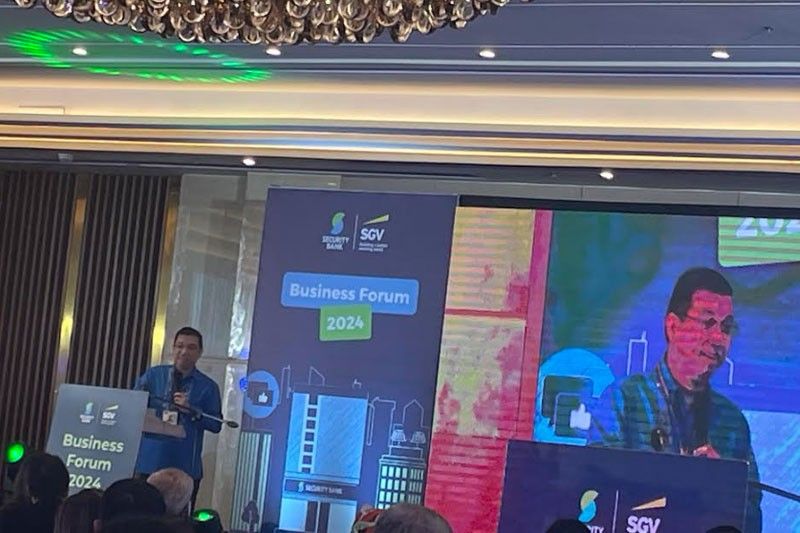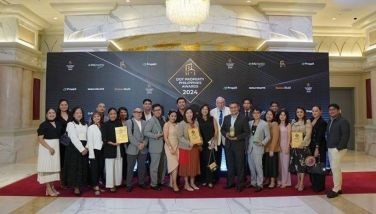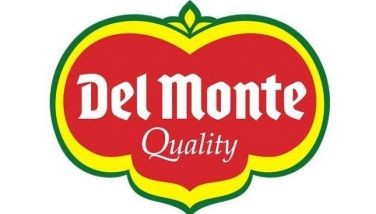Pinoys urged to cut dependence on imported goods

CEBU, Philippines — While the Philippine government is seriously addressing its substantial trade deficit, which is considered its biggest challenge, Filipinos are once again urged to reduce their dependence on imported products.
Department of Trade and Industry (DTI) undersecretary Dr. Ceferino S. Rodolfo made this reminder during his visit to Cebu as a resource speaker for Security Bank’s 2024 Cebu Business Forum held at Nustar Resort in Cebu dubbed “Unlocking opportunities for growth and investment.”
“Not everything is rosy for the Philippines. Our biggest problem is trade deficit,” he said even though the Philippines is touted as the fastest-growing economy in the ASEAN region according to the World Economic Outlook released by the International Monetary Fund (IMF).
A trade deficit occurs when a country’s imports exceed its exports. It is also referred to as a negative balance of trade (BOT).
One of the sources of the Philippines’ huge trade deficit is its dependency on consuming imported processed food and beverages (F7B) led by instant coffee, except for Nestlé brand, Rodolfo said.
Rodolfo reminded Filipino consumers that nearly all instant coffee sold in the market is imported, contributing to the growing trade deficit. This includes popular brands like Indonesia's Kopiko and Vietnam-made Great Taste Coffee, among others.
Consumers are also encouraged to patronize locally manufactured products to help the Philippines balance its trade, thereby achieving its goal of overtaking other growing economies in the region.
In 2014, the Philippines recorded a trade deficit of just US$3.3 billion, but by 2023, it had surged to US$53 billion.
“For a country that is the fastest growing in the region has been experiencing a rapid deterioration of trade deficit situation,” he said.
Aside from food and beverage products, Filipinos can also participate in resolving the trade deficit by buying locally-produced cement products, considering that the construction industry is booming.
Despite the presence of cement manufacturing plants, like Taihiyo Philippines in Cebu, and other cement plants around the country, Rodolfo said these cement plants are only operating from 65 percent to 70 percent capacity because of the proliferation of imported cement in the Philippine market.
At present, the Philippines is the fourth biggest importer of cement globally. The majority of the cement imports now are coming from Vietnam, he said.
To date, the Philippines’ largest source of trade deficit includes among others; automotive (machinery and transport equipment, including airplanes), Petroleum products, Sources of trade deficit—automotive (machinery and transport equipment) and airplanes (SUVs not assembled in the Philippines), and Petroleum products.
The country’s move to shift to Renewable Energy (RE) will also play a critical role in arresting the problem of trade deficit, he added.
Realizing this huge deficit problem, Rodolfo said the government is prioritizing industrialization to push for more local production, particularly in steel products, among others.
“No matter how many mangoes we produce/processed here in Cebu and export. No way, we can solve our trade deficit, we need to industrialize,” he said.
According to Rodolfo, the Philippines government is working on further developing the mineral processing, semiconductor/electronics, Information Technology/Business Processing Management (IT/BPM) and healthy and sustainably produced food to boost exports.
“While importing is important especially for raw materials and other goods, ultimately having a sustaining trade deficit is not good for the economy,” he added.
Security Bank regularly hosts events and forums as an extension of its “BetterBanking” brand promise.
“We hold these forums as part of our commitment to provide our clients with valuable insights for everyday business and investment decisions. This forum embodies our BetterBanking mission to enrich lives, empower businesses, and build communities sustainably. It also leverages our partnership with organizations and industry leaders, such as the DTI and SGV, to facilitate discussions on actionable
strategies in today’s rapidly evolving economic landscape,” said Sanjiv Vohra, President and CEO, Security Bank.
Previous seminars have included guest speakers from the Bangko Sentral ng Pilipinas (BSP), the Department of Economic Research, independent research organizations, economic think tanks, and other industry organizations and leaders. — (FREEMAN)
- Latest

























